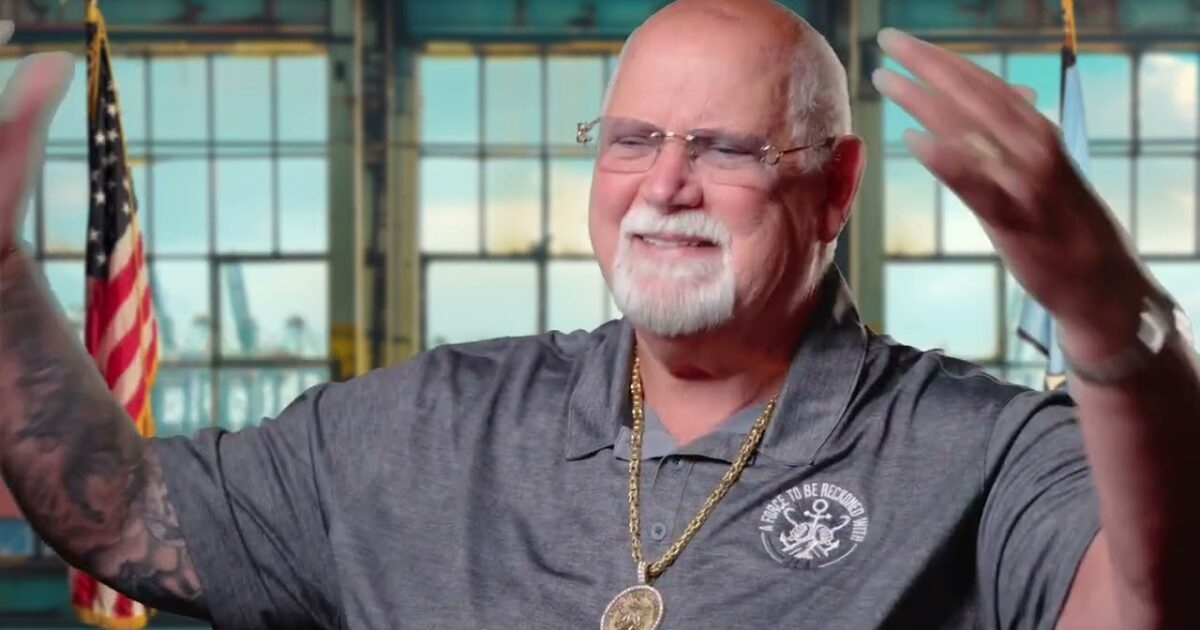The looming strike by the International Longshoremen’s Association (ILA) is raising alarms across the United States as fears of severe disruptions to the supply chain grow.
With tens of thousands of longshoremen preparing to walk off the job at midnight on October 1, 2024, the strike threatens to cripple major U.S. ports, potentially leaving store shelves empty and worsening inflation.
Consumers are being advised to stock up on essentials like food and gas, preparing for shortages that may arise if the strike proceeds.
The economic implications of the strike are significant, as the ILA represents dock workers at East and Gulf Coast ports that handle nearly half of all U.S. imports.
The ILA, led by Harold Daggett, is demanding a 70% pay increase for its members, which could impact the cost of goods across the nation. The strike comes at a critical time for the U.S. economy, which is already facing inflationary pressures and fears of a looming recession.
U.S. Representative Marjorie Taylor Greene has voiced concerns about the situation, particularly in light of a $36 billion food trade deficit, the largest in U.S. history.
Greene warns that a prolonged strike could further destabilize the economy, especially as the holiday season approaches—a time when retailers heavily depend on imports to meet consumer demand.
The strike could also affect sectors beyond retail. Manufacturing, construction, and other industries that rely on imported goods could face delays and shortages.
Experts warn that if the ports remain closed for an extended period, the ripple effects could be felt nationwide, exacerbating the existing strain on supply chains, which are still recovering from the COVID-19 pandemic.
Harold Daggett, the union’s president since 2011, has not shied away from the aggressive rhetoric surrounding the potential strike.
In a recent interview, Daggett stated, “I’ll cripple you, and you have no idea what that means,” underscoring the union’s leverage over the nation’s port system. Daggett has a history of leading tough negotiations, and this latest round could be the most consequential of his career.
However, Daggett’s personal life and leadership have attracted significant attention and controversy.
Recently, Elon Musk retweeted an article that spotlighted Daggett’s luxurious lifestyle, including his ownership of a 76-foot yacht and a Bentley.
Daggett, who reportedly earns nearly $1 million annually, has drawn criticism for his wealth, which some argue is at odds with the union’s blue-collar values.
Furthermore, Daggett has faced accusations of connections to organized crime, though he has consistently denied any wrongdoing.
One of the most notable episodes in Daggett’s career involved his 2005 trial on racketeering charges.
Despite evidence from a Mafia enforcer, Daggett was acquitted.
The trial became even more sensational when one of his co-defendants, Lawrence Ricci, a known mobster, was found dead in the trunk of a car outside a New Jersey diner.
Ricci’s murder remains unsolved, and the incident has fueled ongoing speculation about Daggett’s alleged ties to the Genovese crime family. However, Daggett was acquitted of all charges, and he continues to lead the union with the full support of his members.
— Elon Musk (@elonmusk) October 1, 2024
While Daggett’s controversial past makes for headlines, the current strike negotiations focus on more immediate concerns, such as wages, automation, and job security.
The union is demanding a $5 hourly wage increase annually for six years, alongside control over container royalties and guarantees against automation—a threat that could significantly reduce the workforce in the future.
The U.S. Maritime Alliance (USMX), representing port owners, has countered with a near 50% wage increase over six years, but the offer has been rejected by the union.
The timing of the strike—set to begin in an election year—adds a layer of political complexity. Daggett recently endorsed Vice President Kamala Harris for the 2024 presidential race, raising questions about whether the strike might become a political issue.
Critics have suggested that the union’s demands and timing are designed to create leverage during a high-stakes election cycle, but Daggett and the ILA maintain that the strike is about securing fair compensation for its members.
Truckers, a key part of the supply chain, have expressed concerns about the strike’s impact on their ability to transport goods. With inflation already driving up prices, any further disruptions could cause delays and push prices even higher for consumers. One trucker noted that the strike’s timing couldn’t be worse, as businesses and consumers alike are already struggling with the economic downturn.
Retailers are also bracing for the potential impact of the strike. Many have been trying to stockpile inventory ahead of the deadline, but experts warn that prolonged shutdowns could still lead to shortages of key goods, especially imported items.
The ILA ports handle a large percentage of the nation’s containerized imports and exports, meaning that any disruption will reverberate through multiple sectors.
As the strike deadline approaches, Americans are being urged to prepare for the worst. If the ILA follows through on its threat, the nation’s ports could grind to a halt, choking off the flow of goods just as the holiday season kicks into high gear.
Whether the union and port owners can reach an agreement before October 1 remains to be seen, but the stakes are higher than ever.

